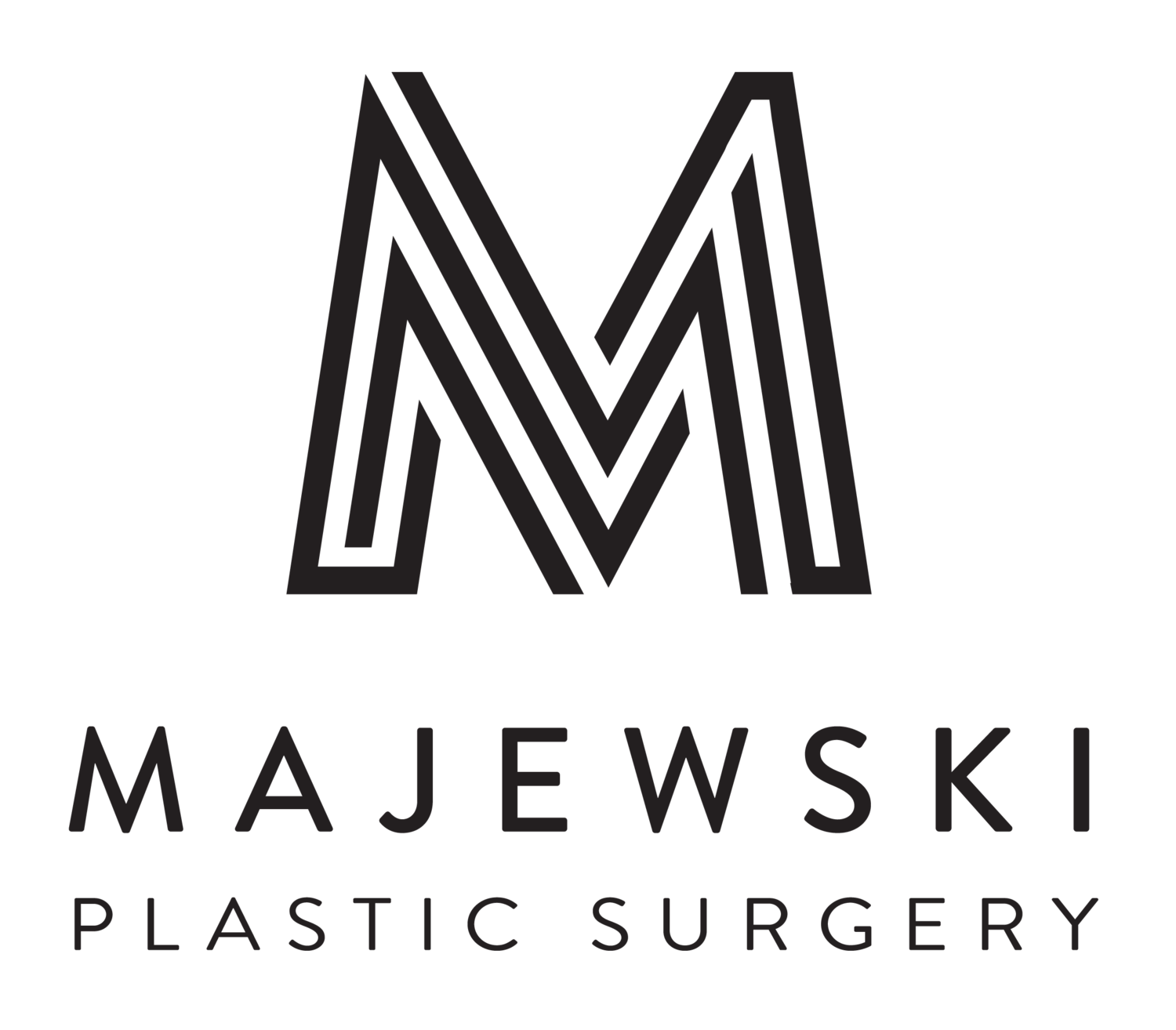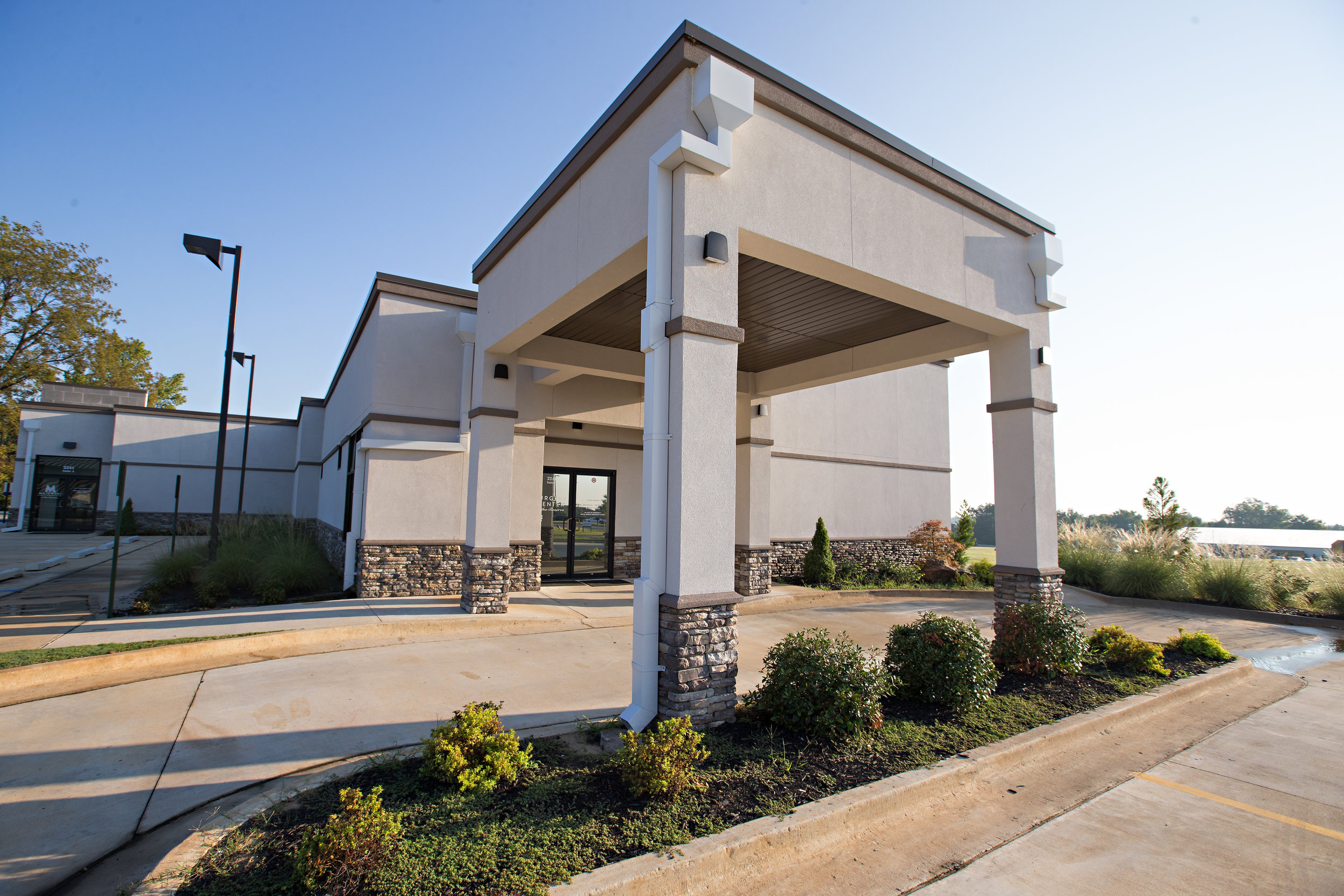Body Contouring
Body contouring isn’t one procedure, but rather, it’s a term that describes several procedures performed in one or more stages, to improve the shape and appearance of the torso (breast, abdomen, back, buttocks), arms, and legs. Often, patients decide to undergo body contouring after they have lost a significant amount of weight. Women who have experienced unwanted changes to their body after having children also will receive body contouring procedures in what is referred to as a mommy makeover.
While they will make you look slimmer and leaner, it’s important to note contouring procedures are not weight loss surgeries - they are intended to improve the shape or appearance of various parts of the body after a patient has reached their ideal weight, either through weight loss surgery or lifestyle changes.
If you've recently undergone (or are currently undergoing) a weight loss journey, congrats on this major step toward a healthier, more active life.
Unfortunately, after any substantial amount of weight loss - whether due to weight loss surgery or lifestyle changes, many people find that their skin and tissues lack the elasticity to conform to their newly reduced body size. Although they are pleased with their weight loss, they still struggle with self-esteem issues and can feel discouraged from continuing their healthy habits.
Luckily, there is a surgical option to remove the excess skin and fat and repair problematic muscle tissues. When done in combination, body contouring procedures - including abdominoplasty, liposuction, breast lift, and others - remove the excess skin and other concerns commonly seen in weight loss patients.
Body contouring procedures include:
Breast surgery (augmentation, i.e. enlargement), breast lift, sometimes breast reduction
Upper body lift
Panniculectomy
Lower body lift
Due to safety concerns, these procedures are frequently performed in stages (to maintain safe limits of time under anesthesia, blood loss etc.).
HOW WEIGHT GAIN AND LOSS AFFECTS THE BODY
Obesity changes the quality and dynamics of muscle tissues, fat, and skin. As we gain weight, our skin stretches, stretch marks form, and our muscles weaken. Increased fat in the intra-abdominal area in particular leads to a separation of muscles in the midline, which can be especially pronounced in women who have experienced pregnancy.
Weight loss decreases the amount of fat in the your body, especially within the subcutaneous layer. If you lose a considerable amount of weight, your skin might remain stretched and sagging even after you've lost the weight.
If the weight loss is more rapid than gradual (like in patients who have undergone a weight loss surgery), you might end up with skin that stretches and hangs over your abdominal area or on your arms or legs.
It is also not uncommon to see abdominal hernias in patients who have undergone significant weight loss - either within previous abdominal incision sites or even spontaneously.
And of course, as we lose weight - it doesn't always happen evenly. Some patients lose fat in the abdomen but not the hips or thighs (pear shape) - others lose fat in the arms and legs but struggle to lose weight in the abdominal area.
Each of these considerations demand an individualized approach to the abdominal contouring of a patient who experienced massive weight loss.
AM I A GOOD CANDIDATE FOR BODY CONTOURING?
For most body contouring procedures, an ideal candidate for surgery is:
In reasonably good health
Has some established weight loss and is at or close to their ideal weight
Has realistic expectations and a positive outlook
Is not a smoker
Not planning to have more children
The presence of scars from previous surgeries may limit some options. The procedure(s) should also be postponed if an active infection is present.
If you smoke, you will be asked to quit smoking two months prior to treatment as well as during recovery to reduce risk of bleeding. If you do not follow these instructions, your surgery will be cancelled for your safety.
CONSULTATION
The purpose of your consultation with Dr. Majewski is to evaluate whether you are a candidate for surgical body contouring and to develop a treatment plan that will help you achieve your goals.
Dr. Majewski will ask you questions about:
Your surgical goals
Medical conditions, drug allergies and medical treatments
Current medications, vitamins, herbal supplements, alcohol, tobacco and drug use
Previous surgeries
He will also:
Evaluate your general health status and any pre-existing health conditions or risk factors
Take photographs
Discuss your surgical options and other non-surgical treatment options (such as CoolSculpting®)
Recommend a course of treatment
Discuss likely outcomes of body contouring and any risks or potential complications
The consultation is the time to ask Dr. Majewski any questions you may have regarding the procedure, recovery, and expected results.
It's very important to understand all aspects of your body contouring procedure. It's natural to feel some anxiety, whether it's excitement for your anticipated new look or a bit of preoperative stress - or both. Don't be shy about discussing these feelings with Dr. Majewski.
COST
The cost of body contouring procedures vary depending on the extent of your surgery, and whether you decide to undergo other procedures at the same time. The cost of your procedure will include anesthesia fees, surgical facility costs, medical tests, post-surgery garments, prescriptions for medications, and the surgeon’s fee.
When choosing a board certified plastic surgeon for body contouring, remember that the surgeon’s experience and your comfort with him or her are just as important as the final cost of the surgery.
Most health insurance does not cover body contouring, but we do offer CareCredit for all cosmetic procedures. You can request a price quote on our Payment Options page.
You might also consider the cost of childcare or other assistance you might need during your recovery period - such as meal delivery, a cleaning service, etc. Although usually not necessary, some patients prefer to delegate some of their household responsibilities during the first few weeks of recovery so they can focus on healing fully.
PREPARATION
In preparation for body contouring surgery, you may be asked to:
Get lab testing or a medical evaluation
Take certain medications or adjust your current medications
Stop smoking
Avoid taking aspirin, anti-inflammatory drugs and herbal supplements as they can increase bleeding
Most of Dr. Majewski’s body contouring cases will take place at our state-of-the-art Surgery Center at the Reserve, located conveniently right next door to our clinic.
PROCEDURE
Body contouring procedures are typically performed under general anesthesia for your safety and comfort. Medications are also administered for your comfort before and during the surgery. Dr. Majewski will explain what to expect from anesthesia.
The exact procedure steps will vary depending on the procedures you decide to undergo. You can learn more about each of these procedures and what they entail here:
BREAST PROCEDURES
BODY CONTOURING PROCEDURES
RECOVERY
Recovery from your surgery will vary greatly depending on the specific procedures you get done. If you undergo abdominoplasty, breast lift, or liposuction, a compression garment or elastic bandages may cover treatment areas once your procedure is completed. These help to control swelling and compress the skin to your new body contours. In addition, small temporary drains may be placed in existing incisions beneath the skin to remove any excess blood or fluid. You’ll be asked to wear a post-surgical bra or another soft, supportive bra with no wire for several weeks following your breast augmentation or breast lift.
You will be given specific instructions that may include:
How to care for the surgical site(s) and drains
Medications to apply or take orally to aid healing and reduce the potential for infection
Specific concerns to look for at the surgical site, or in your general health
When to follow up with your plastic surgeon
RECOVERY TIMELINE
Since you’ll be getting more than one major surgical procedure, you can expect to have a recovery period of several weeks, with full results after several months.
You’ll want to make arrangements for someone to drive you to and from surgery, and stay with you for the first night at least - but ideally, for the first few days following surgery so that you do not have to overexert yourself. You should be able to return to work after a week or two (depending on the extent of your procedure), provided that your work is not physically demanding. Dr. Majewski will give you a more customized recovery timeline during your consultation.
Before scheduling your surgery, think through what time of year makes the most sense for you to undergo this procedure. If you typically get summers off of work, then summer might be a great time for you to recover from your surgery. If your work schedule is less flexible, you might consider getting surgery around a holiday or other break - such as around Thanksgiving, Christmas, or spring break - when you will have family around to help you as you recover.
You will be far more satisfied during your recovery period if you know what to expect - so be sure to ask Dr. Majewski for clarification regarding what to expect during your individual recovery period, including:
Where will I be taken after my surgery is complete?
What medication will I be given or prescribed after surgery?
Will I have dressings/bandages after surgery?
How long will I wear the compression garment?
Are stitches removed? When?
When can I resume normal activity and exercise?
When do I return for follow-up care?
RESULTS
Most patients are eager to see their results as quickly as possible - which is understandable! Body contouring procedures can make a dramatic difference in both your appearance and your self-image.
Patience is key during the recovery period - swelling and numbness are common, and might make you feel discouraged immediately following your procedure.
Be patient with your body, and focus on taking care of yourself. You’ll be debuting your new look in no time! Until then, focus on doing everything you can to recover fully. Follow Dr. Majewski’s instructions closely to ensure best results and a speedy recovery. It's important that your surgical incisions are not subjected to excessive force, swelling, abrasion or motion during the time of healing.
Once your swelling subsides, you’ll be able to enjoy the full results of your surgery. The results of your procedure will be long lasting, provided you maintain a stable weight and general fitness.
The practice of medicine and surgery is not an exact science. Although good results are expected, there is no guarantee. In some situations, it may not be possible to achieve optimal results with a single surgical procedure, and another surgery may be necessary. If you receive breast implants, Dr. Majewski will explain how you may have to have additional surgeries in the future to maintain your desired look.
These are trade-offs, but most patients feel these are small compared to the large improvement in their self-confidence after surgery.
As your body ages, it is natural to lose some firmness, but as long as you maintain a healthy lifestyle, you will continue to enjoy your results for years to come.
Ready to Get Started?
Call us to schedule your consultation!




